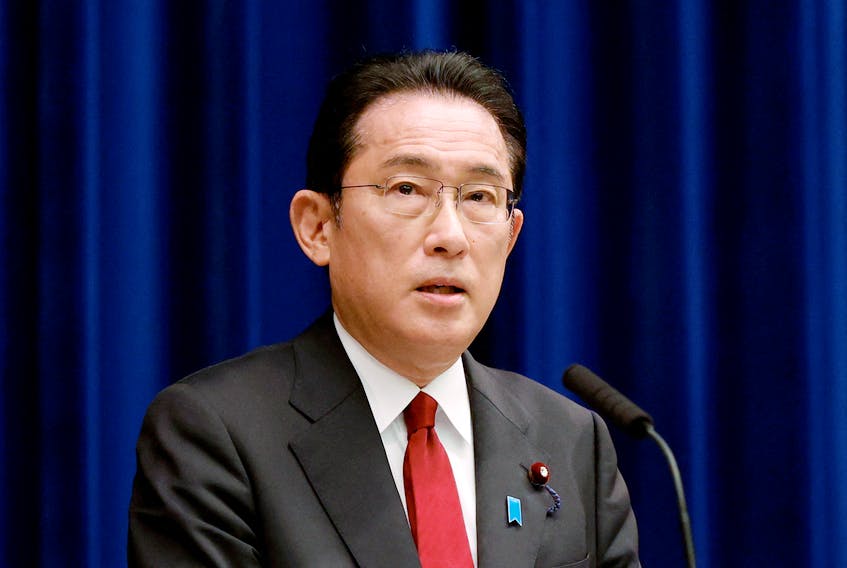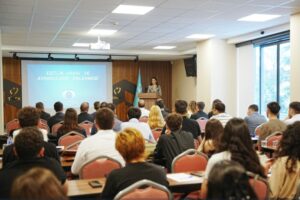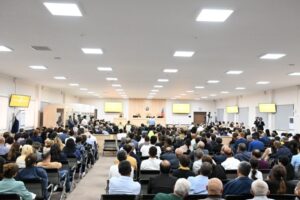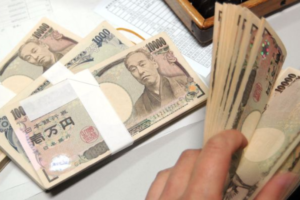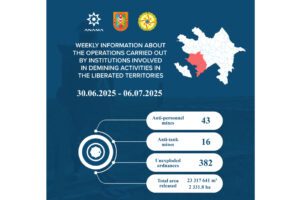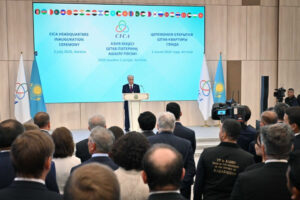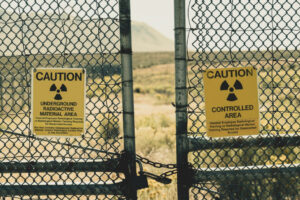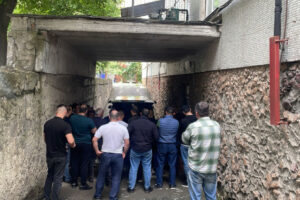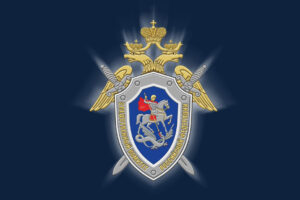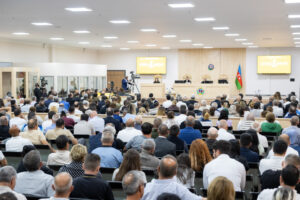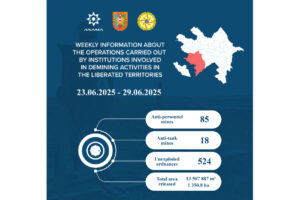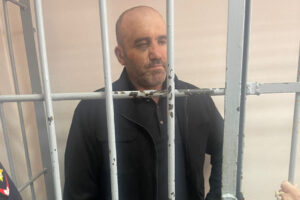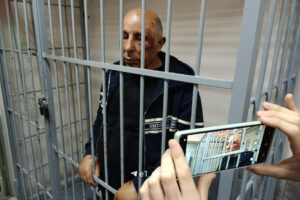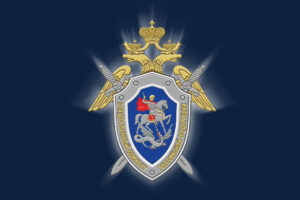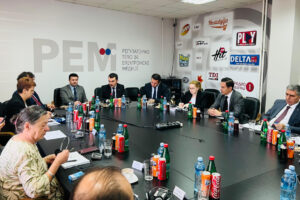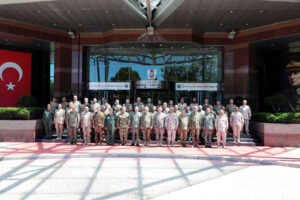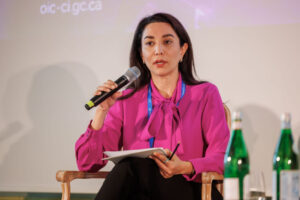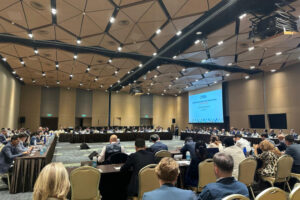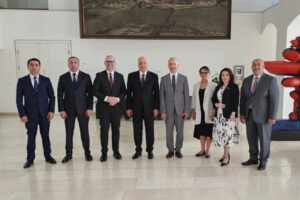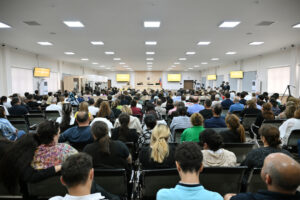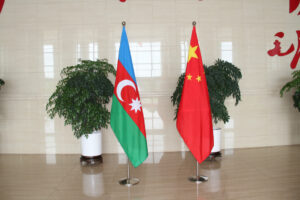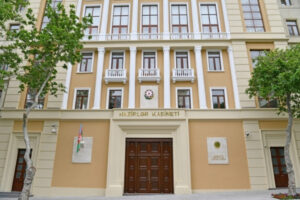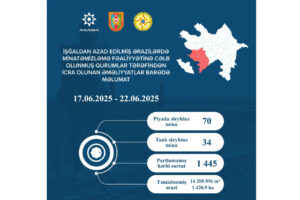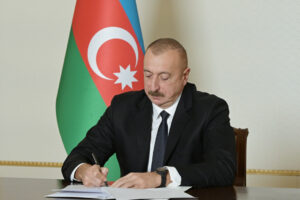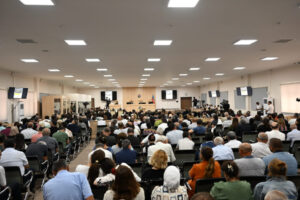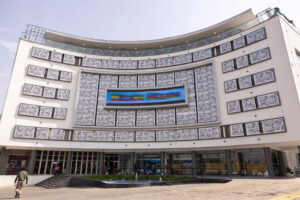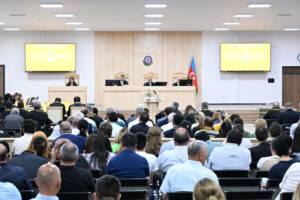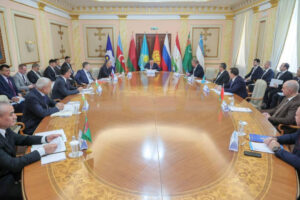Tokyo, 4 March, /AJMEDIA
Ukraine, Russia agree on temporary cease-fire to evacuate civilians
MOSCOW – Ukraine and Russia agreed on a temporary cease-fire Thursday while evacuating civilians from war zones amid concern over the increasing number of civilian victims in the East European country, Ukrainian presidential advisor Mykhailo Podolyak said.
Both sides will observe a cease-fire to create humanitarian corridors allowing civilians to evacuate, the Ukrainian official said.
———-
Quad leaders oppose unilateral use of force in Indo-Pacific region
TOKYO/WASHINGTON – Leaders from Japan, the United States, Australia and India agreed during their virtual meeting Thursday that they oppose any unilateral use of force to change the status quo in their region, the Japanese government said, as Russia’s invasion of Ukraine brings renewed concerns over China’s assertiveness in the Indo-Pacific.
The four major Indo-Pacific democracies also agreed to launch a new humanitarian assistance and disaster relief mechanism which will “provide a channel for communication” as they each address and respond to the crisis in Ukraine, according to a joint statement.
———-
Japan to raise oil subsidy fivefold over Ukraine crisis: PM Kishida
TOKYO – Japan will raise the government subsidy for oil wholesalers to 25 yen per liter from the current 5 yen to prevent a sharp hike in fuel costs as supply concerns sparked by Russia’s invasion of Ukraine continue to push up crude oil prices, Prime Minister Fumio Kishida said Thursday.
The plan will come into effect on March 10 to “suppress sharp increases in petroleum product prices” and ease the impact on households and businesses, Kishida said in a press conference.
———-
U.S. hits Russian oligarchs with new sanctions over Ukraine invasion
WASHINGTON – The United States on Thursday announced fresh sanctions on Russian oligarchs for allegedly enabling Moscow’s invasion of Ukraine, with the measures set to hit one of Russia’s wealthiest individuals as well as President Vladimir Putin’s press secretary, among others.
The actions, similar to previous sanctions, were taken in coordination with the European Union, Britain, Canada, Japan, South Korea and Australia, the Treasury Department said, emphasizing that the move shows global support for Ukraine and a commitment to hold Russia’s leadership responsible for the military aggression.
———-
Japan’s Jan. jobless rate rises to 2.8%+
TOKYO, March 4 Kyodo – Japan’s unemployment rate rose to 2.8 percent in January from 2.7 percent in the previous month, the Ministry of Internal Affairs and Communications said Friday.
The job availability ratio improved in January to 1.20 from a revised 1.17, the Ministry of Health, Labor and Welfare said separately. The ratio means there were 120 job openings for every 100 job seekers.
———-
Japan to relax COVID border controls, give priority entry to students
TOKYO – Japan will ease its COVID-19 border controls further from March 14, raising the daily cap on entrants from overseas to 7,000 from the current 5,000, Prime Minister Fumio Kishida said Thursday.
With some 150,000 overseas students said to be waiting to enter Japan following roughly two years of coronavirus travel restrictions, Kishida unveiled a new scheme to give priority to such students when business travel demand is not high.
———-
IPC to exclude Russian, Belarusian athletes from Beijing Paralympics
BEIJING – The International Paralympic Committee said Thursday it will decline athlete entries from Russia and Belarus for the Beijing Paralympics, reversing its governing board’s decision from the previous day that would have allowed them to compete as neutrals.
The IPC said ensuring the safety of athletes has become “untenable” because the situation in the athlete villages is escalating, while multiple teams and athletes are threatening to boycott the Paralympics, which will open Friday.
———-
Japan gov’t-backed bank to review businesses with Russia over Ukraine
TOKYO – The head of the Japan Bank for International Cooperation said Thursday that the government-owned lender has no choice but to review businesses with Russian partners after the invasion of Ukraine.
The Japanese government holds a stake in Sakhalin Oil and Gas Development Co. or SODECO, which owns a 30 percent stake in the Sakhalin 1 oil and gas project, and extended loans to the project and another Sakhalin 2 gas and oil project, both in the Russian Far East.

